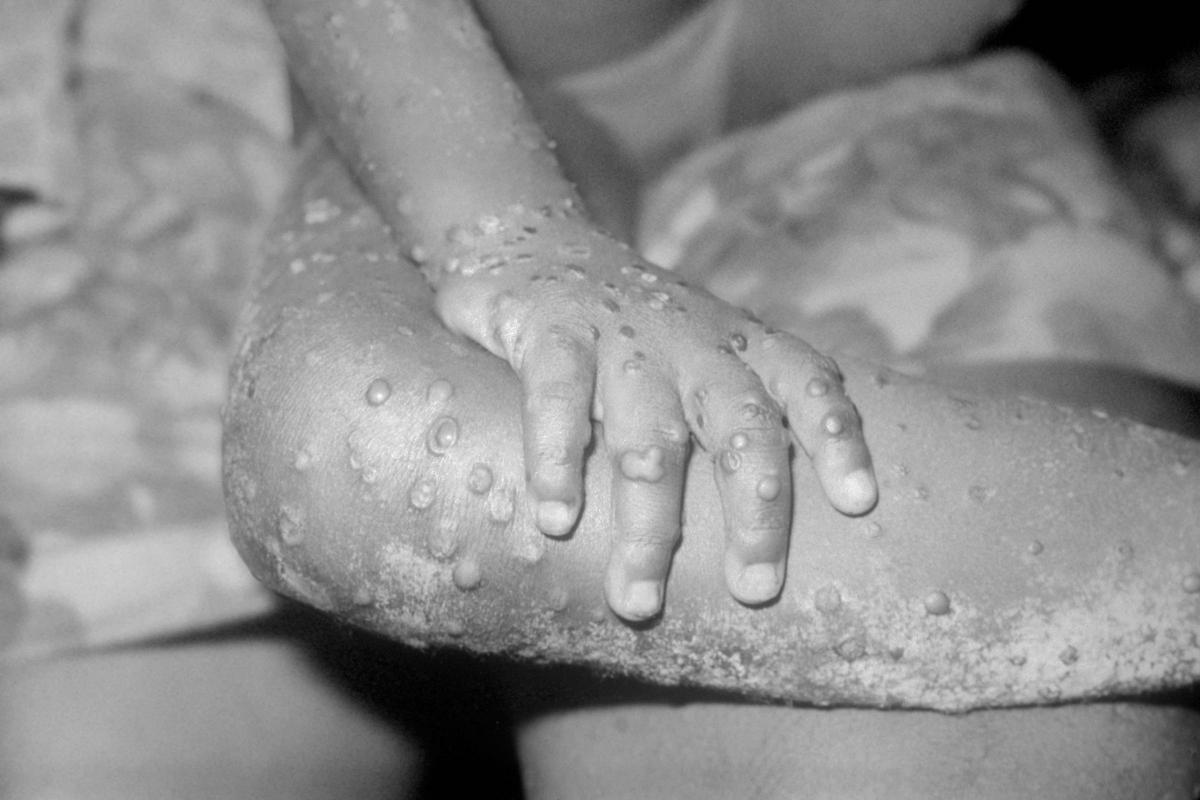
THE first case of monkeypox has been confirmed in Scotland, as the total grows across the UK.
The person is “being managed and treated in line with nationally agreed protocols and guidance”, according to Dr Nick Phin, the medical and public health science director at Public Health Scotland.
Dr Phin described the risk to the public as low, but warned anyone with “blister-like sores” on their body to seek medical attention.
On Friday, the UK Health Security Agency (UKHSA) announced 20 people in England had been confirmed to have the virus, with more expected.
The agency did not confirm details of the person being treated in Scotland, or where they were located, but said close contacts were being traced and would be given support, including the possibility of a vaccination against the virus.
Is monkeypox deadly?
The World Health Organisation (WHO) describes monkeypox as similar to human smallpox and although it is much milder, it can be fatal.
The illness primarily occurs in tropical rainforest areas of Central and West Africa, but can be exported to other parts of the world.
It is normally a self-limiting disease with symptoms occurring for around 2-4 weeks. In some cases, the illness is severe.
The WHO says recently the case fatality rate has been around 3-6%.
Is there a vaccine for monkeypox?
According to Dr Susan Hopkins, the UKHSA’s chief medical officer: “There is no direct vaccine for monkeypox but we are using a form of smallpox vaccine – a third-generation, smallpox vaccine that is safe in individuals who are contacts of cases.
“So we’re not using it in the general population.
“We’re using it in individuals who we believe are at high risk of developing symptoms, and using it early, particularly within four or five days of the case developing symptoms.
“For contacts, (this) reduces your risk of developing disease, so that’s how we’re focusing our vaccination efforts at this point.”
Is monkeypox the next pandemic?
The WHO has described the monkeypox outbreak as “atypical” but two leading scientists have claimed it is not the next pandemic.
Professor David Heymann, an expert on infectious disease epidemiology at The London School of Hygiene & Tropical Medicine, said it will not spread in the same manner as coronavirus.
He said: “This will not be a pandemic as we know pandemics, but it certainly is possible that this disease has spread in many different parts of the world already and we are just beginning to identify it.
“It is not transmitted by air, we don’t believe, so it’s not a respiratory infection like SARS-Coronavirus-2 (Covid-19), so it will not spread in the same manner.”
Prof Heymann, the WHO’s former assistant director-general for health security and environment, added: “It is transmitted from people who have monkeypox to people who don’t have monkeypox by close physical contact with the sore or with the open sore that is causing the disease.
“If there is close contact, physical contact, there is a chance the virus could spread from the lesion on one person to another person and could enter through a break in the skin or through a mucous membrane.
“This virus doesn’t transmit easily. It is a quite rare disease which has now become more common.”
“For contacts, (this) reduces your risk of developing disease, so that’s how we’re focusing our vaccination efforts at this point.”







